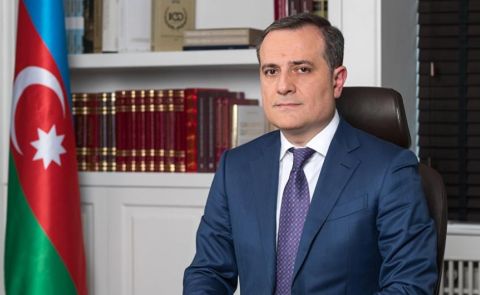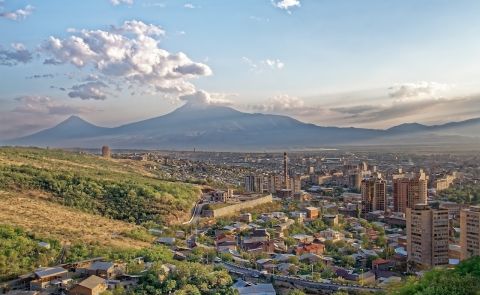
International Crisis Group on Nagorno-Karabakh

On 20 December, the International Crisis Group (ICG) published their report and suggestions on resolving the Nagorno-Karabakh conflict entitled “Digging out of Deadlock in Nagorno-Karabakh”.
The report focused on three main issues in the conflict, namely: 1) the fate of seven adjacent regions in which thousands of ethnic Armenians have settled and which are under the effective control of the de facto authorities in Nagorno-Karabakh; 2) the possible mandate and composition of an international peacekeeping or observer mission that could buttress any political agreement; and 3) Nagorno-Karabakh’s ultimate status.
In relation to the first issue, the ICG stated that “one option for paving the way for more substantive talks might be for Yerevan and the de facto authorities to cease settlement construction in return for Baku pledging to abstain from advocating settlement-related sanctions or filing any related claims in international courts against Armenia.“ Another option to help break the deadlock on settlements might be a comprehensive, independent assessment of the situation in the adjacent territories.
On the second issue, in order to assess the prospects of deploying an international peacekeeping mission in the conflict, the ICG recommended that the OSCE, co-chairs and parties to the conflict could take steps to make the High-Level Planning Group (HLPG) more useful. They could grant it the necessary access and resources and charge it with a time-delimited (perhaps one year) task of defining an updated set of scenarios and options for international peacekeepers or monitors. Another modest step forward could be for the parties to reach agreement on an increase of personnel in the Personal Representative’s office, which is responsible for monitoring along the Line of Contact and the Armenia-Azerbaijan border, and other trust-building measures.
As on the third issue, the ICG offered several discussed models that involve minimal subordination to Baku. These tend to envision a future in which Nagorno-Karabakh authorities: 1) could reject decrees or laws from Baku related to self-governance in the region; 2) enjoy considerable self-governance, including in educational and cultural policy, public health, some branches of the economy, law enforcement and postal services, among others; 3) are subject to Azerbaijan’s judicial and customs systems; 4) could establish economic representation in foreign countries; 5) have a role in formulating foreign and security policies (but no veto over Azerbaijan’s policies in those areas); and 6) maintain a demilitarised zone with no armed forces inside the region.
These options draw substantially on the experience of European countries that resolved territorial disputes without changing their borders, like the Aaland Islands, Northern Ireland or South Tyrol. But the report stated that none of these models is directly comparable to Nagorno-Karabakh. The principal problem, according to the ICG is that even if Baku is open to granting Nagorno-Karabakh considerable autonomy, anything short of independence is unacceptable to Yerevan and Stepanakert. The Armenian side rejects any plan in which Nagorno-Karabakh returns to Baku’s direct control, whether in the short or long term.
The report also noted that small progress had been made recently in the negotiation process. “There are, however, small signs of movement. In contrast to its predecessors, the new Armenian administration expresses more interest in finding a compromise to resolve the conflict. For the first time, Yerevan speaks publicly about its readiness to take into account the interests of people living in not only Armenia and Nagorno-Karabakh, but also Azerbaijan. Azerbaijanis increasingly discuss what a peace process and Nagorno-Karabakh self-rule might entail, with some analysts and officials thinking creatively about possible next steps on the main status-related issues in the Madrid principles: interim status, the referendum and final status. If Baku turns such ideas into official proposals and Yerevan is ready to make good on its expressed desire to find a peaceful solution acceptable to Azerbaijan and reciprocate with its own suggestions that factor in Stepanakert’s views, the resulting conversation in theory could help both sides better understand one another. Such discussion will not resolve the question of status any time soon, but it can perhaps help identify potential areas of cooperation,” the report stated.
The International Crisis Group (ICG) is a transnational non-profit, non-governmental organisation founded in 1995, which describes itself as “working to prevent wars and shape policies that will build a more peaceful world”. Its headquarters are in Belgium. The ICG provides early warning through its monthly CrisisWatch bulletin, a global conflict tracker it says is designed to identify both risks of escalation and opportunities to advance peace. The organisation also produces detailed analysis and advice on specific policy issues that are affecting conflict or potential conflict situations; and that it engages with policy-makers, regional organisations and other key actors to promote peaceful solutions to major conflicts; and that it offers new strategic and tactical thinking on intractable conflicts and crises. The ICG has often been characterized as “liberal” and as a “a left-leaning advocacy organization.”
See Also


Nordic-Baltic Delegation Meets Armenian Leaders to Discuss Regional Cooperation and Peace

Azerbaijan Strengthens Energy Partnerships with Multiple Countries

BP Strengthens Presence in Azerbaijan’s Offshore Energy Sector

Netanyahu’s Letter to Aliyev: Mutual Trust, Solidarity Following Hamas Attacks, Facilitating Dialogue Between Israel and Türkiye

